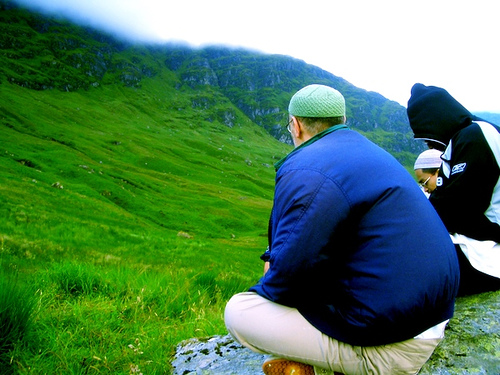American Mosques: NOT Places Where “Terrorists’ Monkey-gods” Are Worshiped

As I’m sure you’ve heard by now, Tea Party leader Mark Williams recently responded to plans of building a mosque in New York City near Ground Zero by spewing bigoted hate-speech which Muslims have grown accustomed to. Williams mixed up his brown people when he said that the proposed mosque would be a “monument ... for the worship of the terrorists' monkey-god and a 'cultural center' to propagandize for the extermination of all things not approved by their cult." Williams did make a half-hearted, snarky apology to Hindus who he says “worship Lord Hanuman, an actual monkey god.” In contrast to the monotheistic God of Adam, Jesus, Noah, and Muhammad who is worshiped by people of Muslim, Christian and Jewish faiths whom he disparagingly likened to a monkey in a puny attempt to belittle Muslims.
Contrary to what Williams thinks, mosques are places where people come together and re-center themselves around God. Mosques are places where worldly problems are checked by humility in front of the divine. They are the very places which teach the true tenants of faith, and openly condemn the violent acts of a few. American Mosques provide a sense of belonging for those who feel alienated and ostracized by people like Williams, and spaces to engage with Muslims as well as people of other faiths. Mosques collect funds that are donated to charity, provide classes, and host soup kitchens. Some mosques are more liberal, while some are quite conservative. Some mosques are rather dogmatic, while some focus on spirituality. Some get political, some don’t. Mosques, like churches, in America are very diverse; however I have never witnessed the propagating “for the extermination of all things not approved by their cult” in any American mosque that I've visited, including the more conservative and dogmatic ones.
The fact of the matter is that people with extremist ideologies or tendencies stay away from mosques because they know they aren’t welcome. But if someone with a slightly more radical outlook does decide to join in on mosque services, that’s a couple of hours a week spent learning from a credible, learned imam and away from his computer where he’s probably on pretty goofy websites and engaging with other like-minded radicals. And if you’re still concerned, rest assured that there are informants-a-plenty in every mosque in this country.
Some say that it’s simply insensitive to build a mosque so near to Ground Zero because it’s a “slap in the face” for victims’ families. I read in an ABC News article that Rabbi Schmulley Boteach said "On the one hand, stopping a mosque from being built undermines the very notion of freedom of worship in the United States. On the other hand, the idea of building a mosque and celebrating Islam at the site where 3,000 innocent Americans were killed by Islamic terrorists is an affront to so many people that I see it dividing New York and the nation."
We have to remember that not all Muslims should be held accountable for the horrific, inhumane, and entirely unjustifiable terrorist acts of September 11, 2001. In fact, dozens of American-Muslims lost their lives that day while working in the Twin Towers.
The American-Muslim victims of 9-11 and the American-Muslim survivors of 9-11 living in New York absolutely have the right to worship God and erect a symbol of their true faith to stand in total opposition to the place where terrorists not only destroyed countless lives and families, but also perverted the message and meaning of Islam. People already pray at the proposed site which is an old Burlington Coat Factory. They simply want to improve upon what they already have and build something they can be proud of; a sanctuary from the residual pain which 9-11 brought to all New Yorkers, regardless of their relgion.
What would be more beautiful and more American than to have a glistening gold dome added to the skyline of New York City amongst the myriad of churches and synagogues? And honestly, what would be more defiant than to boldly state that no matter what, through thick or thin, freedom of religion is a core American value that should not be touched?
I was talking with a friend's father the other day about how difficult it is to secure permits for building mosques in this country. This man happens to work in Saudi Arabia and was quick to remind me that although it's unfortunate that we have to jump through so many hoops to get mosques built, in places like Saudi Arabia building churches is altogether illegal. This simple anecdote should put things into perspective for Muslims and non-Muslims alike.
Building places of worship should not cause people like Mark Williams to go off on racist tirades, but should inspire people to promote and defend American ideals.
Labels: 9-11, ACT For America, American Muslims, Freedom of Religion, Ground Zero Mosque, Mark Williams, racism, Septemeber 11, terrorists' monkey-god




